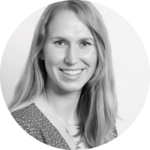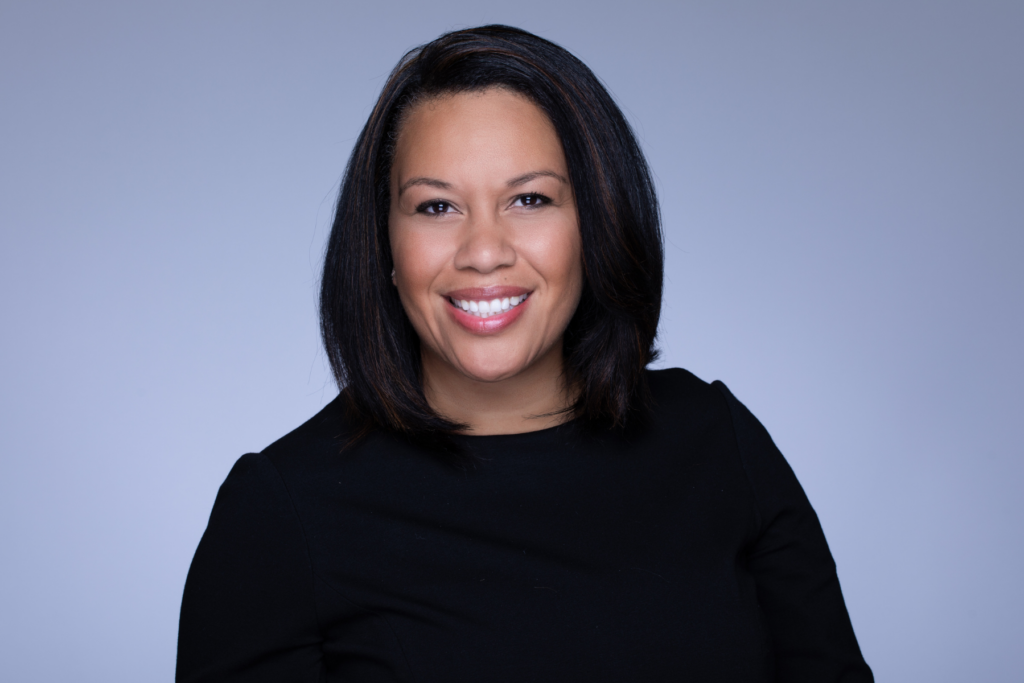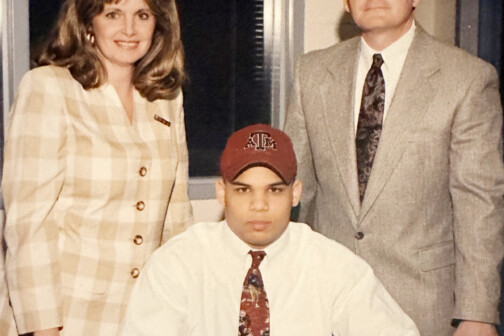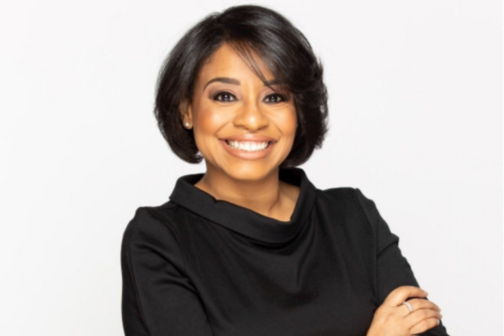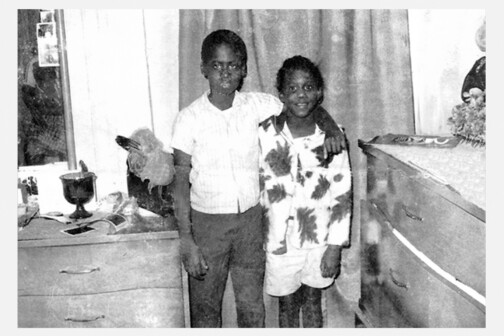Tanya Sanders is head of Wells Fargo’s auto finance division. Based in Irving, she joined Wells Fargo in 2019, and has worked her way up through head of retail underwriting and fulfillment and retail lending and head of auto transformation roles. Prior to that, she was a managing director at JPMorgan Chase and senior vice president at Bank of America.
Below, she shares her journey through feelings of loneliness in her career as a Black woman in auto finance, finding an encouraging mentor, and trying to give a voice to underrepresented communities.
Early Exposure to Diversity
“My parents met because my dad was in the military. He was a Vietnam veteran, and after Vietnam, he was stationed in Hawaii, which is where he met my mother. My father was African American Black from South Carolina….My mother is Polynesian, and she was from American Samoa. The two of them met and started their family. I was born in Hawaii, then we continued through our military transitions from there. My fondest memory as a child is having the experience of just living in so many different places and having exposure, not only to different parts of the US, but we also lived overseas in Germany. Military life for us was very diverse. Diversity from an ethnicity perspective—so many different backgrounds and cultures are part of the military; different socioeconomic backgrounds join the military. I was really fortunate to be exposed to a lot of different perspectives and a lot of different religious backgrounds, just through my experience growing up in the military.
“We were one military family. So, the differences were not a bad thing, it was actually a source of pride. I remember we would have the little flags that you put in your car, and my mother always had the American Samoa flag, and then my Puerto Rican friends would have their Puerto Rican flags, and then the Jamaicans would have their Jamaican flag…People were really comfortable sharing and participating in the different cultural experiences that we all brought to the table.
“I have two siblings, a younger brother and a younger sister. My brother and I are only a year apart, so as we started to hit our teenage years, my parents were very firm with us about the fact that we were Black. [They told us] there were certain experiences that we would have that we had to be cognizant of. It was at that point in time, around those teenage years, where my parents were extra cautious about not getting into trouble, making sure that we didn’t walk around in groups and make an appearance as if we were causing trouble. I think that’s when it really started to show up more as a caution of what we might experience.
“My father was very open with how he grew up. Even though during his childhood, our country had moved past segregation, where he lived and where he grew up in a rural area of South Carolina, it’s still very segregated. He went to the Black high school. We had conversations about the doctors, and the services that they got were from people who catered towards the Black residents where he lived. So, he definitely had a different experience that he was very clear with us about. But I do think that being in the military, he was always clear that that was his ticket out of what was a not so great experience and one that didn’t have as many opportunities. So, being drafted, while many people may have viewed that as a bad luck thing, for him, that was his ticket out of The South; that created more opportunities for him to have a long career and a successful career in the military, but also to expose his family to a lot more than what he had when he grew up.”
A Lonely Start
“When I went to Clemson, I studied mechanical engineering with the idea that I wanted to affect public policy and the and then what was the focus around the energy transition…I had my first job at General Electric as part of one of their engineering development programs and worked in gas turbine and powerplant design…
“In those early years, as an engineer, I spent a lot of time being very cognizant of the fact that I was one of the few women engineers in the group. I had a lot of great teammates, both peers and mentors, at the time who really encouraged me to just continue to pursue being an engineer. I did a great job. I remember my first chief engineering review meeting where the chief engineer, Bob, saw my presentation, saw my work, and afterwards said, ‘You’re doing great, you need to keep at it. There aren’t a lot of women,’ and he just really encouraged me to stick with it. Culture matters and having camaraderie matters…So, it was a bit lonely, but mainly because there just weren’t a lot of us around at the time.
“I moved into consumer finance and left General Electric to go to Bank of America. When I went to Bank of America, I was able to take a lot of the problem solving and analytics and modeling skills that I had developed as an engineer and bring those into my financial services roles…But after the first two years there, I realized that while banking had great diversity in general, auto finance, being attached to the auto industry, had fewer women and fewer people of color. So, it was certainly one of those first-time experiences, where I did start to feel like I wasn’t part of the group…I chose at that time to leave and to go into business banking, because I didn’t feel like I fit in. I thought that there was a culture that was primarily White male, and they just had different interests and different experiences than I had. While the work was satisfying, the camaraderie and the culture weren’t necessarily as welcoming.”
A Meaningful Mentor
“I left to go to business banking and did that for about a year, until I happened to run into a leader who I had worked with in auto finance at bank. He asked why I had left, and I explained to him ‘Well, you know, I didn’t always feel like I fit in, and I just thought I would try something different.’ And he was very dissatisfied with that answer. He was another White male. He said, ‘Well, I think you should give it another shot.’ I think he was really disappointed about the experience I had and wanted to help me understand that it was a great place to have a career.
“So, he offered me the opportunity to come back into auto finance and to work directly with him. He sponsored and mentored me through a couple of roles and helped me to learn the auto industry and helped to create more doors to open for me, helped me to make the introductions to people who were more tenured within the industry, so that I could actually start to build my own network and build my own profile of experiences within auto finance…
“Once [he and I] aligned on core values, the cultural pieces started to kind of shed away. I think for me, personally, it was having someone who I was very closely aligned to on values, and then him helping to make the introductions and open those doors to other people who were similarly aligned. It became less about that they have the same life experiences or the same cultural experiences, and it became more about ‘Do we have the same values? And do we believe that we have the same core principles in mind, as we’re working together and dealing with each other in business?’”
Giving a Voice
“While it’s great to have the opportunity to have a seat at the table, and I’d love solving business problems and being able to help teams develop and move toward those business goals, when you’re one of the few, or the only, in the room, there is this extra sense of responsibility that you have to bring those voices to the table that aren’t represented at the table. So, I do find that I have to, not push myself, but be cognizant of making sure that those extra perspectives that aren’t represented are heard. I use that seat not just for myself as a Black woman, but as any person who’s not represented at the table, making sure that those voices and perspectives are heard.
“I think the challenge sometimes can be making it real for people who may not have those perspectives…There were a lot of conversations that were happening in business and employees being impacted by what was going on in the country [during the pandemic and after George Floyd]. At Wells Fargo, we have a significant presence in Minneapolis. So, where the [George Floyd protest] events were happening or were concentrated, we had employees who were being directly impacted by what was going on in their communities.
“Being able to be a voice to say, ‘Well, this isn’t just about where it’s happening in that specific incident. This is about a history of people who have had these experiences’….There are different experiences that people have had over their lifetime, and this event starts to trigger certain emotions and feelings and perspectives that have to be discussed. As someone who was involved with our company’s DEI commitments and in planning, being able to really advocate for courageous conversations and bringing leaders to conversations with employees, so that employees had a chance to talk about it and share with leaders how events were impacting them personally, that’s my responsibility to really make sure that that perspective comes through and that those voices come through.”
Getting Boots on the Ground
“I think Dallas has a lot of diverse leaders who are very engaged through a number of [organizations in] our business community, whether it’s the Chamber, or a number of other organizations that bring together voices to have an impact with the local communities, with community organizations that are advocating for more diversity, more inclusion, bridging the gap across our various communities. I think we have a lot of good work that’s happening, but I do think that we have an opportunity to do more. There’s a number of areas in our community that are still separated from a lot of the progress and development that we’ve seen in certain parts of Dallas. I think as a collective we still have the opportunity to do a better job bridging those gaps.
“I think leaders have to get close to the issues. I think it’s not enough to read and know that they exist; I think you have to go into those communities and hear and experience directly what the challenges are in the communities that need additional support and help from the business community…If we can just encourage more business leaders to get close to those communities and spend time with the people who know how to solve those problems best, I think that’s the one thing I would say we can do more of.”
Author
